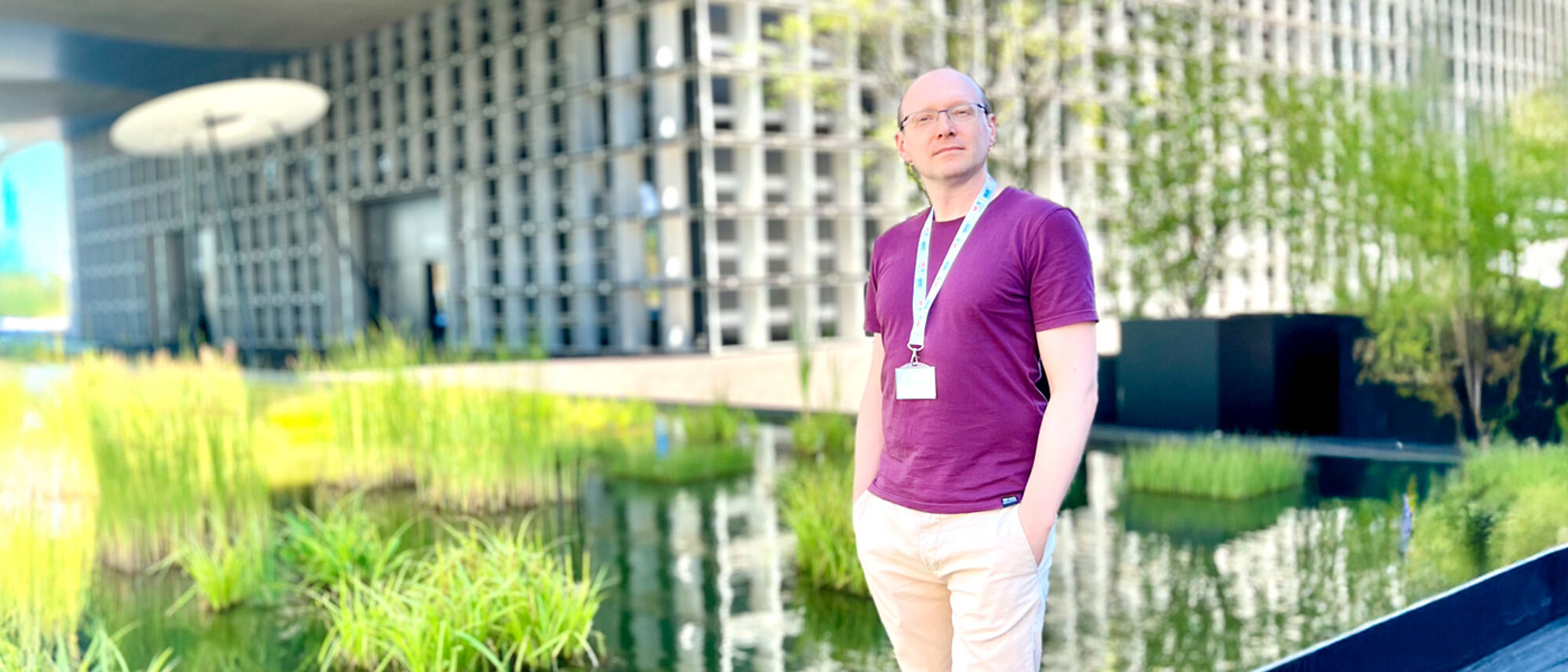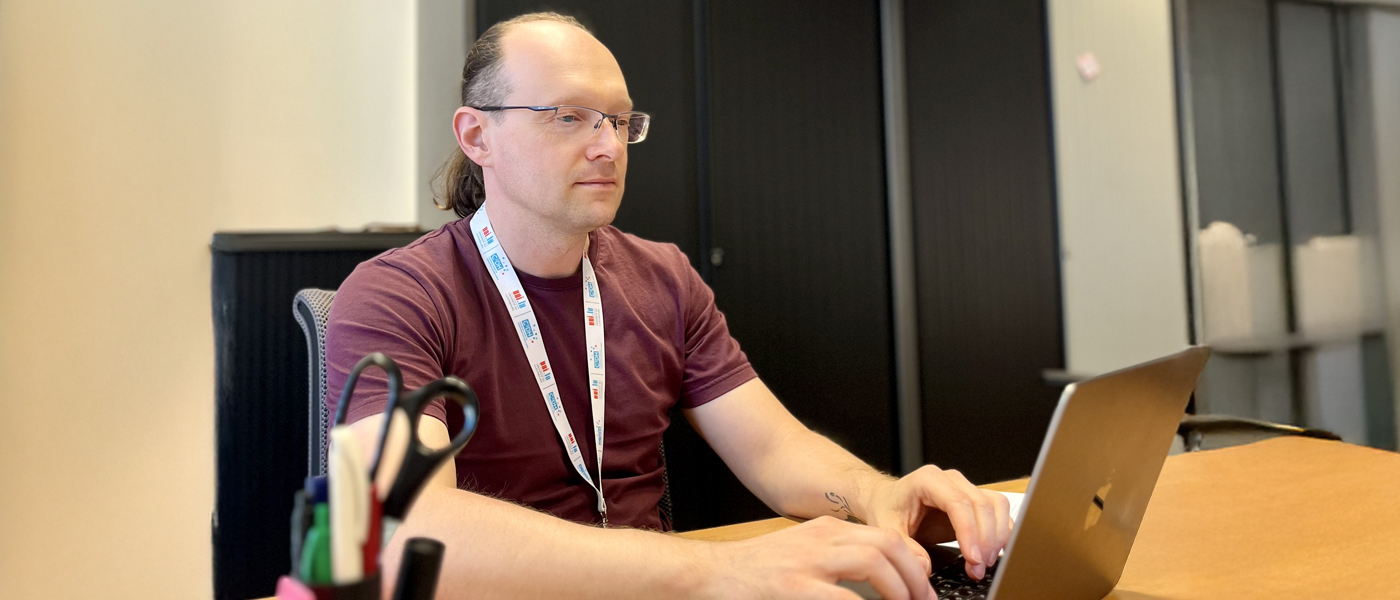
A brighter future for mental health
Interview by Sophie Lambert
Postdoctoral researcher Vitalii Klymchuk (PGDip 2023) has dedicated his career to developing mental health services and creating policies that have the potential to positively impact thousands of lives. His work in his home country of Ukraine and across the EU seeks to improve the quality, availability and accessibility of mental health services for those who need them most.
“I didn’t always intend to work in mental health. I initially trained to be a physics and maths teacher. However, teaching wasn’t my calling, and I began to explore the field of psychology. I completed a PhD and spent the next eight years working in research.
I felt that I wanted to do more and be more impactful, so I began studying psychotherapy so that I could work in a clinical setting and support people in Ukraine more deeply. While working in practice I realised that, by developing better and more humane mental health support systems, better education and better legislation, many more people would have access to mental health support. My interest in mental health evolved from clinical work to focus on the policies behind the systems.
"Winning this award feels like a sign that I am doing the right things and that I need to keep doing them.”
Global Glasgow
In 2016, Ukraine got a new Minister of Health who was very interested in developing a mental health system that moved away from the old ways of thinking. She invited me to join her team to work on the development of a mental health strategy for the country.
I wanted to learn more about developing mental health systems in different countries, so I started to look for global mental health programmes. I applied to UofG and immediately found the University to be hugely supportive.
The Postgraduate Diploma in Global Mental Health was terrific. I did the course at home and graduated in 2023. The course has had a huge impact on my work because this kind of programme broadens your worldview and helps you to see underlying principles which can be integrated into mental health systems in other countries.
Putting policy into practice
I think my biggest achievements have been in Ukraine – one is the development of the Ukrainian National Mental Health Strategy 2030, which was approved at a national level in 2017. Another important achievement was convincing the Ukrainian NHS and Ministry of Health to integrate mental health services into primary healthcare. Many people with mental health problems have comorbidities such as obesity and cardiovascular disease and this system means that these services are all in one place. This may seem like a small step, but it can change the lives of thousands of people.

I’m now based in the University of Luxembourg as a mental health specialist for a new project funded by the European Commission. We are working to implement an exchange programme between six EU countries to stimulate multidisciplinary collaboration around mental health. I am also working on legislation in Ukraine around a new standard of mental health and psychological support.
"The idea of changing the world is something we talk about as a family. If my son is on the computer and I ask him what he’s doing, he’ll say, ‘I’m changing the world,’ and I’ll say ‘Good for you, carry on!’ “
World-changing work
It was a complete surprise to be nominated for the World Changing Alumni Award because my wife didn’t tell me about the application! It’s very exciting to have received this recognition and to have been selected alongside such brilliant professionals.
I’m excited about coming to Glasgow for the first time in March 2025, when I will be there to celebrate this award. I am travelling with my wife and teenage son and we look forward to exploring the city and Scotland."
The World Changing Alumni Award is a prestigious annual University honour which recognises and celebrates the achievements of alumni who have made a major contribution to the community, arts, science or business. It has been presented to a world-changing alumnus every year since 2001 – previous winners have included Mark Beaumont, Selina Hales and Emeli Sandé.
This article was first published in January 2025.
The SDGs in Vitalii’s work
SDG 3: Good Health and Wellbeing
Vitalii’s innovative approach to mental healthcare is impacting thousands of individuals in Ukraine. “In 2016 I worked with a tool that would enable family doctors to train nurses in delivering mental health support to patients. I wanted to translate it into Ukrainian and now, in 2024, more than 12,000 family doctors are being trained in this intervention. Seeing these changes happening on a large scale is very rewarding – it feels like you are changing the world, and I like that feeling!
SDG 10: Reduced Inequalities
By making input into developing a comprehensive mental health strategy in the EU, Vitalii aims to reduce health inequalities. “What I envision is a strategy that is as comprehensive and multidisciplinary as possible while allowing for local contextualisation and adaptation.”


